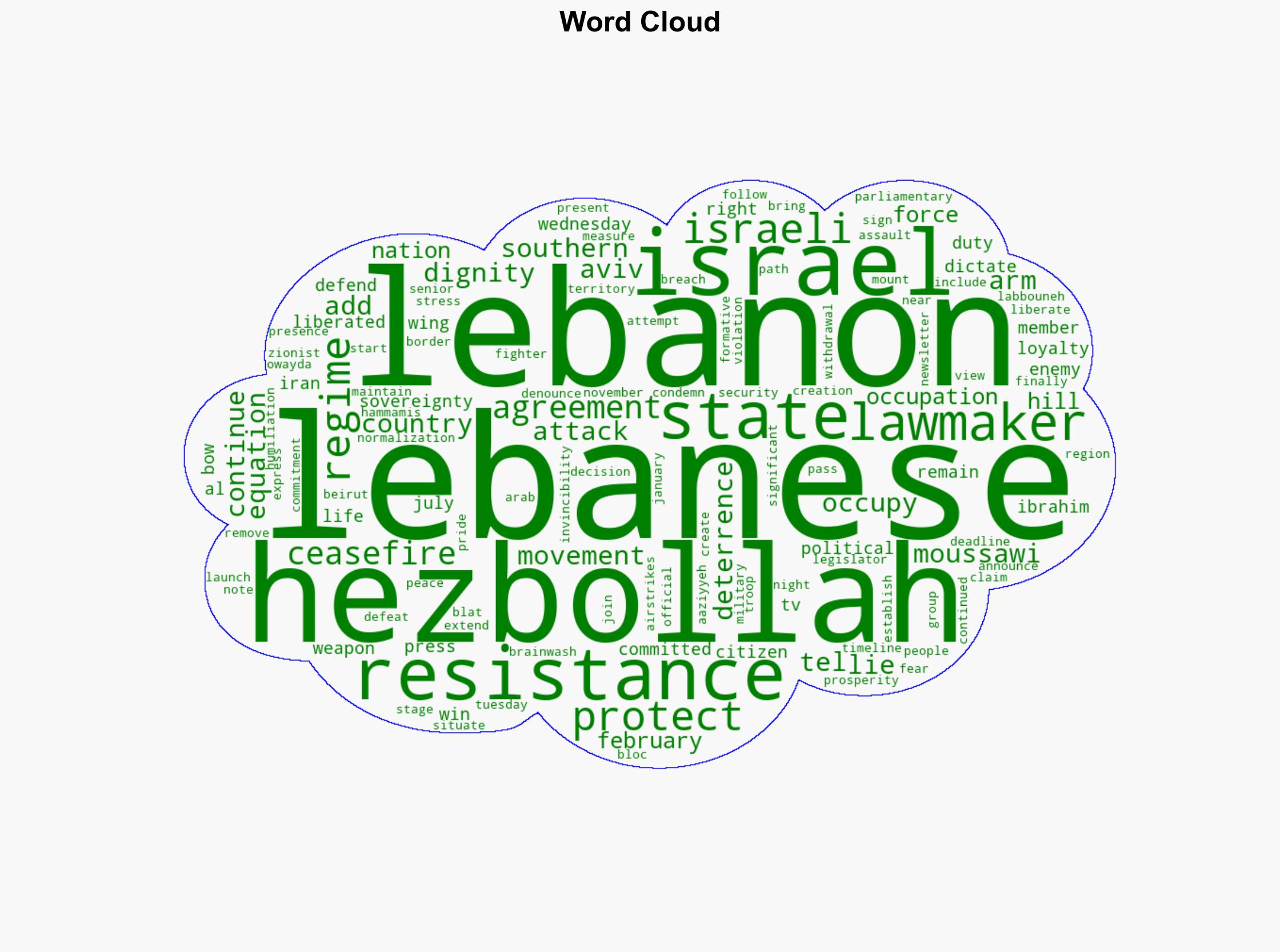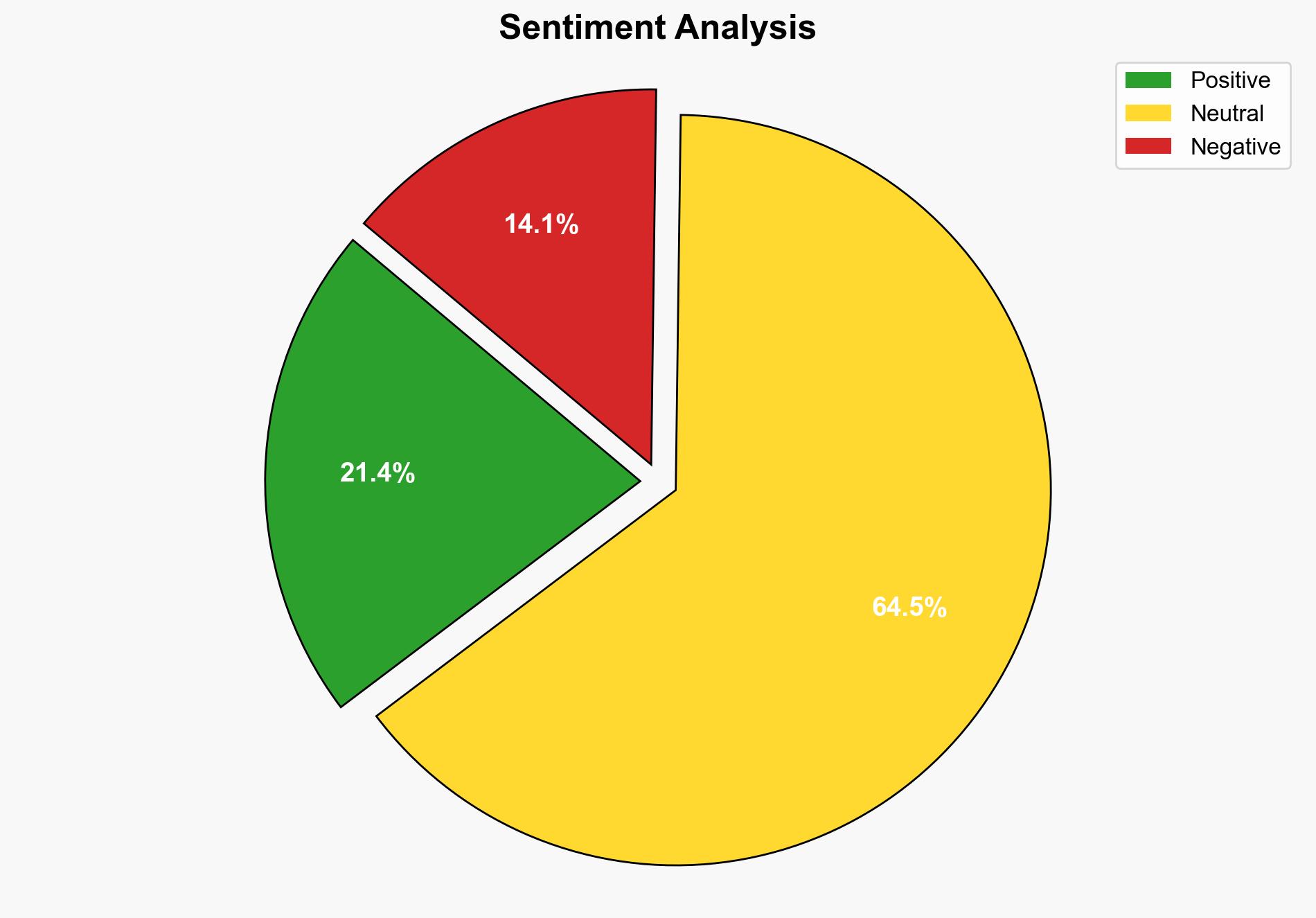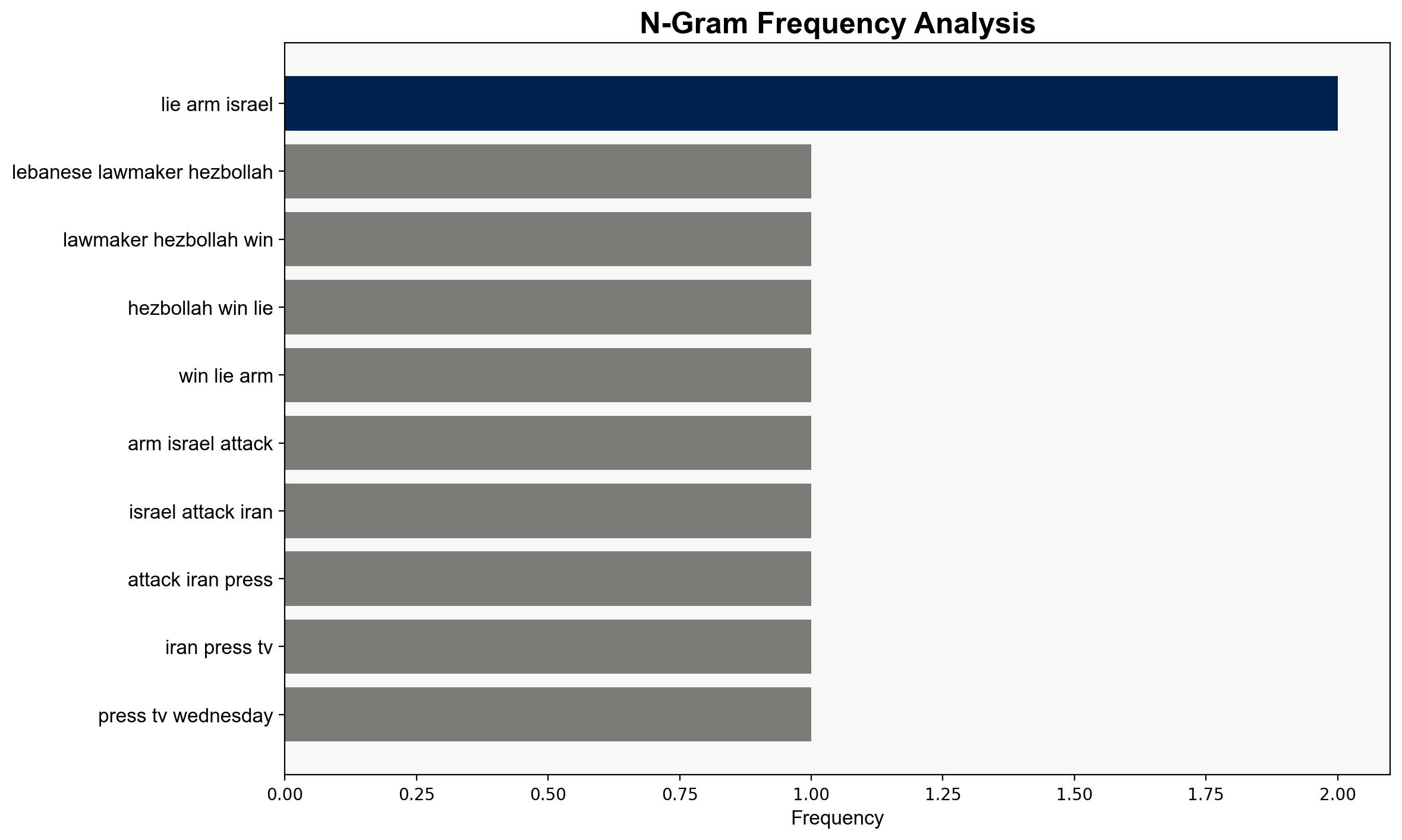Lebanese lawmaker says Hezbollah won’t lay down arms amid Israel’s attacks – Globalsecurity.org
Published on: 2025-07-03
Intelligence Report: Lebanese lawmaker says Hezbollah won’t lay down arms amid Israel’s attacks – Globalsecurity.org
1. BLUF (Bottom Line Up Front)
Hezbollah, through statements by Lebanese lawmaker Ibrahim al Moussawi, has reaffirmed its commitment to maintaining its armed stance in response to ongoing Israeli military actions in southern Lebanon. This position underscores the persistent volatility in the region and highlights the challenges in achieving long-term peace and stability. It is recommended that diplomatic channels be prioritized to address the ceasefire violations and to explore avenues for de-escalation.
2. Detailed Analysis
The following structured analytic techniques have been applied to ensure methodological consistency:
ACH 2.0
Hezbollah’s refusal to disarm is likely driven by perceived threats from Israel and a strategic aim to maintain deterrence capabilities. The group’s historical narrative of resistance against occupation supports this stance.
Indicators Development
Monitoring of Hezbollah’s communications and movements in southern Lebanon is crucial to anticipate potential escalations. Indicators include increased military activity or rhetoric from key figures.
Narrative Pattern Analysis
Hezbollah’s narrative of resistance and protection of Lebanese sovereignty continues to resonate with its base, potentially aiding recruitment and support. This narrative is likely to be amplified in response to Israeli actions.
3. Implications and Strategic Risks
The continued militarization by Hezbollah poses risks of renewed conflict, potentially drawing in regional actors and destabilizing the broader Middle East. The violation of ceasefire agreements by Israel could further entrench hostilities, complicating diplomatic efforts. Additionally, there is a risk of increased radicalization and recruitment within Lebanon, fueled by ongoing tensions.
4. Recommendations and Outlook
- Engage in multilateral diplomatic efforts to reinforce ceasefire agreements and promote dialogue between Israel and Lebanon.
- Enhance intelligence-sharing mechanisms to monitor and mitigate potential escalations in the region.
- Scenario-based projections:
- Best Case: Successful diplomatic intervention leads to a renewed and enforced ceasefire, reducing tensions.
- Worst Case: Escalation into full-scale conflict involving regional powers.
- Most Likely: Continued low-intensity skirmishes with periodic diplomatic engagements.
5. Key Individuals and Entities
Ibrahim al Moussawi
6. Thematic Tags
national security threats, cybersecurity, counter-terrorism, regional focus




